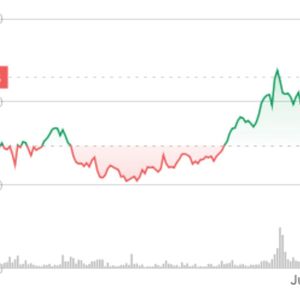India stands at a pivotal juncture in the global Web3 revolution. Despite having one of the largest cryptocurrency user bases, restrictive taxation and policies are driving Indian crypto traders and investors toward offshore platforms. This trend not only hampers the growth of the domestic Web3 ecosystem but also poses a risk of losing ₹17,700 crores in Tax Deducted at Source ( TDS ) revenue over the next five years. Organizations like CoinDCX and the Blockchain and Web3 Association (BWA) are advocating for friendlier policies and reduced tax burdens to keep India competitive in the Web3 space. With the Indian government inviting citizens to contribute their ideas for the Union Budget 2025-2026 , now is the time to act. The State of Web3 Taxation in India 1. High Tax Rates Are Pushing Users Offshore Since the 1% TDS on cryptocurrency transactions was implemented in July 2022 , over ₹500,000 crores have been traded on offshore crypto platforms . A report by Esya Centre estimates that India lost ₹6,000 crores in tax revenue as a result of this migration. 2. Complex Tax Laws Discourage Local Engagement The current Sections 194S and 115BBH of the Income Tax Act impose high tax burdens on crypto transactions, with a flat 30% tax rate on gains. This lack of differentiation between speculative trading and legitimate investments stifles the Web3 ecosystem’s potential. Why Favorable Policies for Web3 Are Essential 1. Economic Growth and Job Creation Web3 is a rapidly expanding industry that offers opportunities in blockchain development , DeFi , NFTs , and metaverse applications . Pro-business policies could foster job creation and economic growth, turning India into a global Web3 hub. 2. Boosting Tax Revenues Lowering the tax rate and encouraging onshore trading could significantly increase compliance, boosting tax revenues. 3. Retaining Talent and Capital Restrictive policies risk driving away India’s talented developers and entrepreneurs to countries with more crypto-friendly environments, such as Singapore or Dubai. Three Key Requests for Strengthening Web3 in India 1. Reduce the Crypto Tax Rate to 0.01% A lower TDS rate would reduce the burden on traders, encourage onshore trading, and improve compliance. Countries like Japan have implemented lower tax rates to foster innovation in blockchain and cryptocurrency. 2. Amend Sections 194S and 115BBH of the Income Tax Act Introduce provisions ensuring that offshore platforms comply with local tax laws , irrespective of their physical location. This would create a level playing field for domestic exchanges and discourage capital flight. 3. Provide Regulatory Clarity Establish clear guidelines for the taxation and operation of Web3 companies. Recognize cryptocurrencies and blockchain as legitimate industries, distinct from speculative gambling. How Citizens Can Contribute to Policy Change The Indian government is inviting citizens to submit suggestions for the Union Budget 2025-2026 . Here’s how you can help shape Web3 policy: Visit the official portal to share your suggestions: Union Budget Suggestions Portal Advocate for the following: Reduction of the crypto tax rate to 0.01% . Amendments to Sections 194S and 115BBH to ensure fair competition. Policies that encourage Web3 innovation and blockchain adoption . What’s at Stake if India Doesn’t Act? 1. Loss of Revenue India risks losing ₹17,700 crores in TDS revenue over the next five years if the current trends persist. 2. Brain Drain Top developers and entrepreneurs may relocate to more crypto-friendly jurisdictions. 3. Missed Global Leadership Opportunities With countries like the UAE, Singapore, and Switzerland making strides in Web3, India could lose its chance to lead this global transformation. FAQs 1. Why should India reduce the crypto tax rate? Lowering the tax rate to 0.01% would encourage onshore trading, boost compliance, and increase tax revenues while fostering innovation. 2. What are Sections 194S and 115BBH of the Income Tax Act? These sections govern the taxation of cryptocurrency transactions, imposing high tax rates that discourage domestic engagement. 3. How can individuals contribute to Web3 policy reform? Citizens can share their suggestions on the Union Budget Suggestions Portal , advocating for friendlier Web3 policies. 4. What are the benefits of fostering Web3 innovation in India? Web3 has the potential to drive economic growth, create jobs, and position India as a global leader in blockchain technology. 5. What risks does India face with its current policies? High tax rates and restrictive policies could lead to revenue loss, talent migration, and missed opportunities in the global Web3 ecosystem. Conclusion India’s potential to become a global superpower in Web3 hinges on adopting favorable taxation and policies . Reducing tax rates, amending outdated laws, and providing regulatory clarity will not only boost tax revenues but also retain talent, attract investments, and foster innovation. As the Union Budget 2025-2026 approaches, it’s up to citizens and stakeholders to advocate for change. By collaborating with policymakers and voicing your support for Web3, you can help ensure that India takes its rightful place as a leader in the blockchain revolution. To learn more about the innovative startups shaping the future of the crypto industry, explore our article on latest news, where we delve into the most promising ventures and their potential to disrupt traditional industries.

















